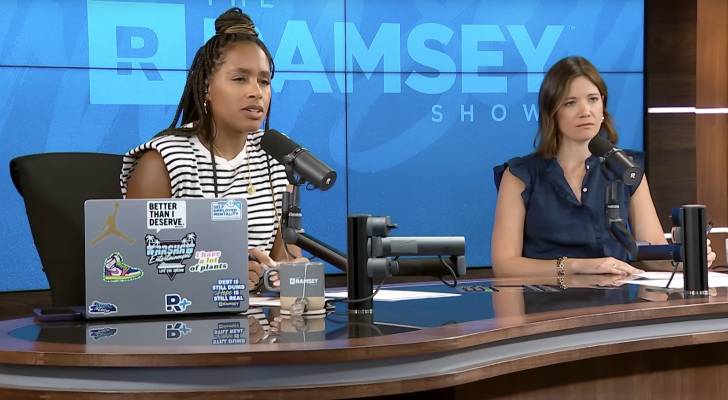
Melissa, a disabled veteran in Charleston, West Virginia, thought she’d found the perfect home. She quickly discovered how wrong she was.
Within weeks of moving in, she told The Ramsey Show, her family started getting sick, displaying allergy-like symptoms.
Don’t miss
- Thanks to Jeff Bezos, you can now become a landlord for as little as $100 — and no, you don’t have to deal with tenants or fix freezers. Here’s how
- I’m 49 years old and have nothing saved for retirement — what should I do? Don’t panic. Here are 6 of the easiest ways you can catch up (and fast)
- Robert Kiyosaki warns of a ‘Greater Depression’ coming to the US — with millions of Americans going poor. But he says these 2 ‘easy-money’ assets will bring in ‘great wealth’. How to get in now
“Long story short, [we] ended up getting someone to come in and test for mold, and it’s very high numbers,” Melissa said in a clip posted June 22. The type of mold found, she says, was Stachybotrys — often called black mold.
Melissa says the home passed an inspection before closing, but it’s unlivable in its current state, and she’s unsure where to go from here.
Hidden problems
On top of the mold problem, an adjuster came by and informed Meslissa the basement wasn’t up to code. She says the estimated cost to fix the mold was at least $10,000, while upgrading the basement would set her back $20,000.
Melissa says she explored her legal rights.
“I contacted attorneys, and they all pretty much said that I don’t have a case because it’s a buyer-beware state,” she said. “They have no duty to disclose mold in West Virginia.”
Indeed, West Virginia operates under “caveat emptor,” where properties are sold as-is and sellers don’t have to provide potential buyers with a formal disclosure about the state of their property.
Melissa suggests it would have been beneficial to have hired a specific mold inspector for the job, rather than just a general one, to hold the seller accountable for any existing mold in the home.
Read more: Want an extra $1,300,000 when you retire? Dave Ramsey says this 7-step plan ‘works every single time’ to kill debt, get rich in America — and that ‘anyone’ can do it
Game plan
At the time of the call, Melissa says the family was living with her partner in Columbus, Ohio, and she commutes two-and-a-half hours every other day to meet with clients and maintain her business in West Virginia. She earns about $10,000 per month in disability and after-tax income from her job, but she has no savings and her costs are presently high.
Show co-hosts Jade Warshaw and Rachel Cruze suggested that Melissa find a cheap, temporary rental to provide stability between her home and work life while she searches for a permanent solution.
“I would be saving, and I would do the cheapest renovation you can to get this mold out so that you can, in good conscience, sell this home,” Cruze said.
The co-hosts also suggested she continue to explore her legal options, if financially feasible.
Cost of mold remediation
Mold cleanup costs can vary widely — ranging between $500 to $30,000 — depending on the location of the mold and the size of the impacted area, according to This Old House.
If you’re dealing with mold problems, here’s a rough idea of what remediation might run you:
- Small area (e.g. bathroom) — $500-$1,500
- Basement — $500-$4,000
- Attic — $1,000-$9,000
- Drywall — $1,000-$12,000
- HVAC system — $3,000-$10,000
- Large area/whole house — $10,000-$30,000
Keep in mind, there are broader impacts beyond financial costs, like potential health concerns and hidden maintenance problems.
Mold infestations can affect a property’s value and lead to mortgage issues if lenders refuse financing for mold-ridden properties.
What to read next
- You don’t have to be a millionaire to gain access to this $1B private real estate fund. In fact, you can get started with as little as $10 — here’s how
- Here are 5 ‘must have’ items that Americans (almost) always overpay for — and very quickly regret. How many are hurting you?
- Accredited investors can now buy into this $22 trillion asset class once reserved for elites – and become the landlord of Walmart, Whole Foods or Kroger without lifting a finger. Here’s how
- Rich, young Americans are ditching the stormy stock market — here are the alternative assets they’re banking on instead
Stay in the know. Join 200,000+ readers and get the best of Moneywise sent straight to your inbox every week for free. Subscribe now.
This article provides information only and should not be construed as advice. It is provided without warranty of any kind.